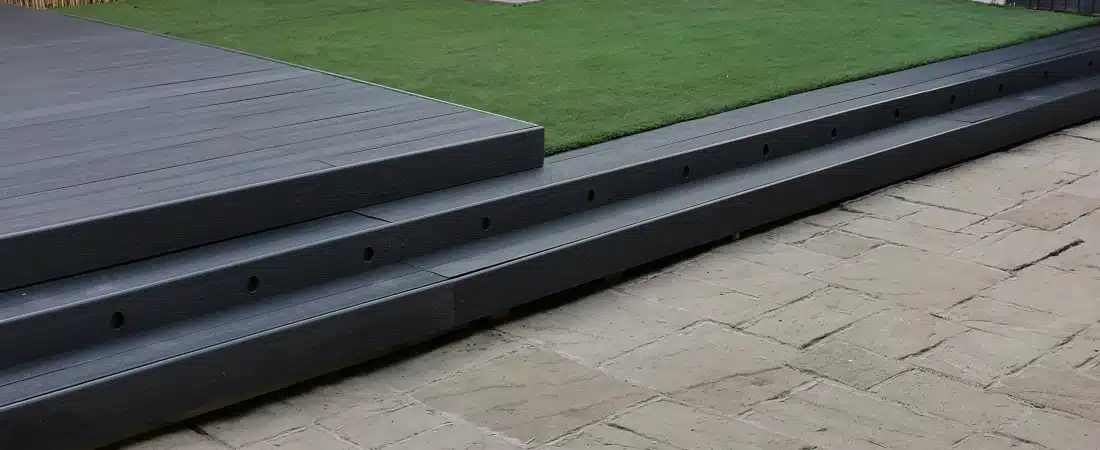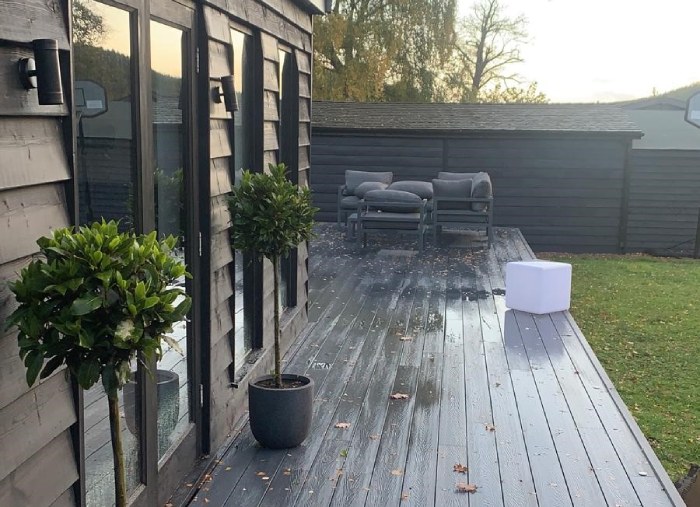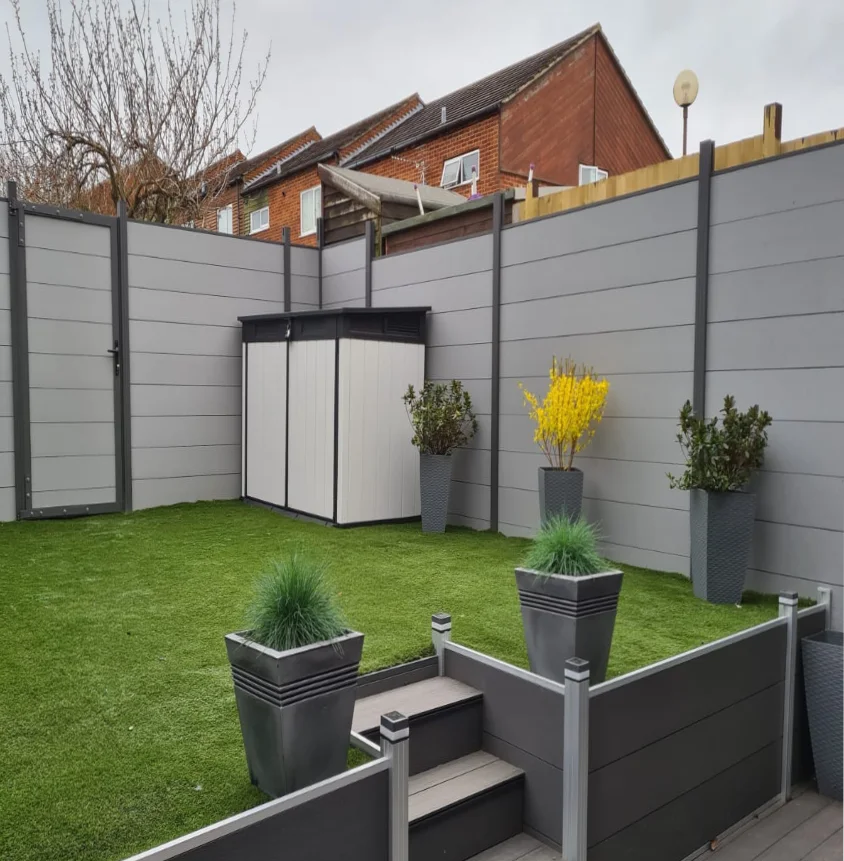Is Composite Wood Waterproof?
When building anything, the main priority is safety. That’s the reason why building regulations and construction codes are in place. When adding a deck, you will also want to prioritise safety for you and your family. One of the most common issues with wooden decking is being slippery, but what are the differences between PVC and composites.
To avoid such accidents, many carefully decide what materials to use. Some are more slippery than others. Many people do wonder if PVC decking is slippery when wet regarding this matter. Is it safe to use?
Here are a few pointers that you may consider.
Is PVC Slippery When Wet?
The slippery decking is the last thing you want. It can cause serious and sometimes disastrous accidents. Because of this, using the right material when you are building decking is crucial. In this regard, is PVC a suitable choice?
Short for polyvinyl chloride, PVC is a low maintenance solution offering excellent water and scratch resistance. PVC is a thermoplastic used for various applications, including flooring, decking, fencing, and cladding. Both wood and PVC can be slippery due to varying reasons. But in general, plastic is often more slick than wood. Because of the plastic outer layer of PVC decking boards, they are more prone to becoming slippery when wet.
Why are PVC Deckings Slippery?
Aside from being plastic, what is the real reason why PVC decking and plastic, in general, can be slippery? One of the main reasons is poor drainage. Unlike wood, PVC absorb very minimal amounts of water. While it may be a good thing, it can be dangerous without proper drainage. If water pools on your decking, you’ll likely slip more. This frequently occurs when decking doesn’t have enough decking board spacing.
Another reason why PVC decking can become slippery is due to mould growth. As mentioned, PVC is waterproof. That means, unlike wood, it won’t rot or naturally attract moulds and mildew. However, there can be other causes for them to grow. Pollen, leaves, dirt, under the frame, edges, grooves and other debris over time can be breeding grounds for fungi. It can make your decking slippery, but mould and mildew can also stain your decking.
Overall, both plastic and wood decking can be slippery. But that doesn’t mean you can’t do anything about it. The truth is, how slippery your decking is will depend on how well you maintain it.

What Can You Do?
PVC decking has many advantages over wood. If you decide to use PVC, there are a couple of things you can do to make your decking less slippery.
The first thing you will want to do is maintain your decking regularly. If you spill any food or liquids on your decking, it’s best to wipe them clean as soon as possible. A regular cleaning schedule also makes a huge difference, especially if your outdoor space has a lot of plants and vegetation near the decking area.
Another way to keep it safer is to use rugs and carpets. It can make your decking safer, but it can also improve the appearance of your decking. However, you will want to use the right type of rug. As much as possible, avoid rugs with hard backing or metallic accents, as they can scratch the decking. Make sure to clean them as often as necessary to avoid any staining problems.
If you are still planning to build decking or replace an old one and slipping is a concern for you, you may decide to install decking away from your garden or pool. You may also look for high-quality PVC decking boards. Many decking board manufacturers have products that feature an anti-slip coating or textured surfaces to increase friction. More friction means it’s less slippery, even when it’s wet.
Other Non-Slip Decking
If you still have concerns about using PVC, there are other choices that you can opt for. For instance, while wood is generally slippery, hardwood varieties are less susceptible to moisture. They are safer, but they are more durable than traditional wooden decking materials.
Another option is to choose composite decking. Similar to PVC, it offers superior durability, low maintenance, and a long lifespan. Depending on the quality, you can also find slip resistant composite decking materials. And what’s more, is the composites look more natural and wood-like than most PVC decking boards on the market.
Before you choose, you will want to study each of the pros and cons. But whatever you choose, using high-quality materials, a regular cleaning schedule and utilising various ways to keep your decking maintained will reduce the potential risk of slipping.
What Are The Benefits To Using Composite Fencing




